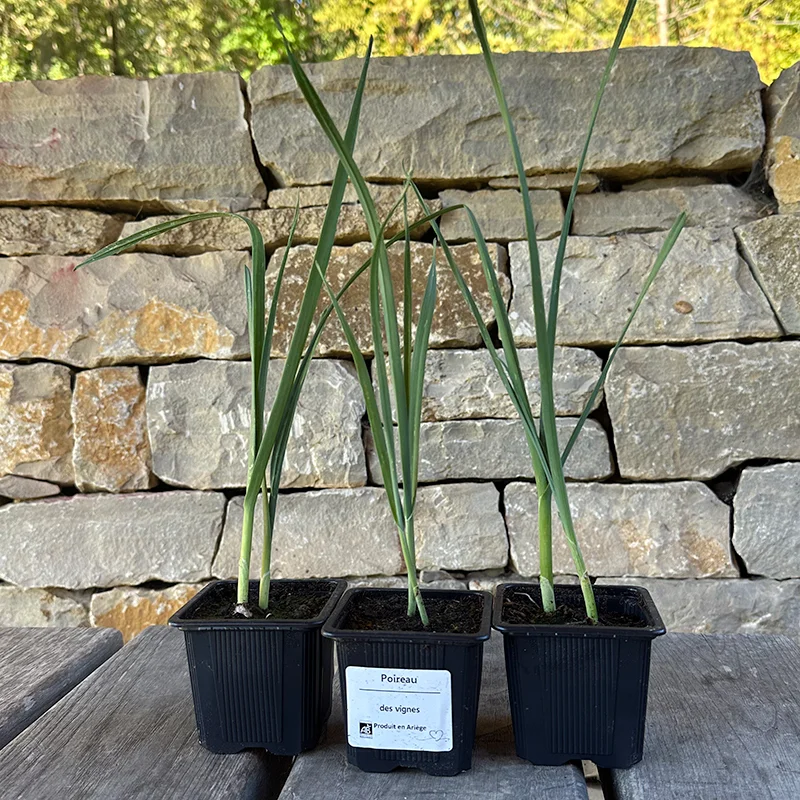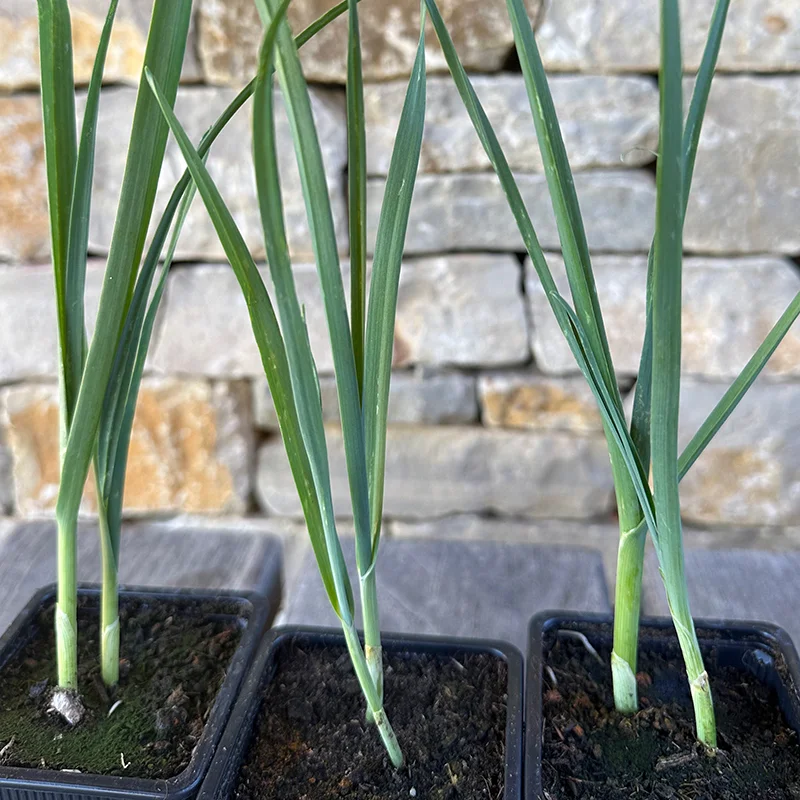6 AB leek plants - Allium polyanthum
This pack includes 3 cups, each containing 2 vine leek plants.
Vineyard leeks, also known as many-flowered garlic or wild leeks, have shorter, thinner barrels than cultivated leeks, and a mild, sweet taste after cooking, similar to asparagus or new leeks. Similar to the perpetual leek, it is distinguished by its flower, with stamens that protrude little or not at all from the corolla, and by its much smaller bulbils.
Hardy, perennial vine leek plants are easy to grow in any vegetable garden, as well as in pots or tubs.
How to grow the vine leek?
This wild leek grows naturally in vineyards. Able to thrive in a wide range of conditions, it prefers chalky, well-drained soil and sunny exposure.
Transplant vine leek plants in early autumn or spring, after the last frosts, every 10 cm in rows 30 cm apart.
Keep the soil clean and deadhead the plants twice a season to blanch the leaves.
Vineyard leeks go into vegetative dormancy in summer, and their foliage turns yellow, then disappears, before reappearing in August.
When to harvest vine leeks?
Once established, vine leeks can be harvested as needed from September to June. Use a knife or chisel to cut off the thin stems at the base, about 1 to 2 cm above the bulbs. The bulbs should be left in the ground to produce new leaves.
Multiplying vine leeks
Although vine leeks reproduce by seed, they can also multiply very easily by dividing their clumps in spring and their bulblets in summer.
Dividing vine leek clumps
In spring :
- dig up an attractive vine leek plant using a spading fork;
- divide the clump by cutting cleanly through the center with the cutting edge of a spade;
- replant immediately;
- water regularly until the first signs of recovery appear.
Division of perpetual leek bulbils:
In summer:
- lift a leek plant from the vines using a spading fork;
- Separate peripheral bulblets by hand, taking care not to damage their roots;
- replant immediately, at a depth of 5 cm.
What companion plants should I use for Vine Leeks?
In the vegetable garden, the vine leek is a good neighbor for carrots, celery, tomatoes and spinach.
Eating vine leeks
Smaller and stronger-tasting than the cultivated leek, the vine leek is considered both an aromatic herb and a vegetable. It can be eaten both raw and cooked, and can be enjoyed in the same way as the annual leek: steamed in vinaigrette, in salads, or in vegetable stir-fries. All its parts are edible: leaves, stems, flowers and bulblets.
Its nutritional qualities make it an ally in the kitchen. In addition to being an excellent condiment rich in iron, phosphorus, vitamins, etc., leeks are recognized for their antiseptic, digestive and stimulating properties.
Shipment and delivery of vine leek plants
Orders are dispatched every Monday.
- Shipment to mainland France only.
- Shipping cartons designed for optimal plant protection.
- Free shipping does not apply to plants.










